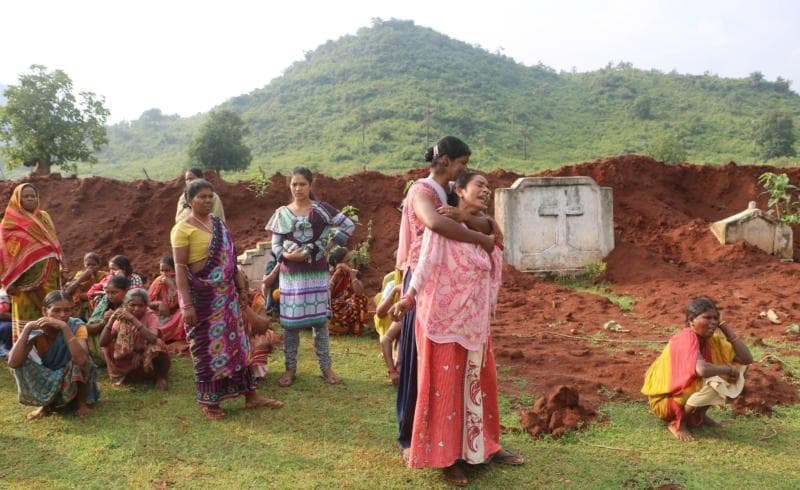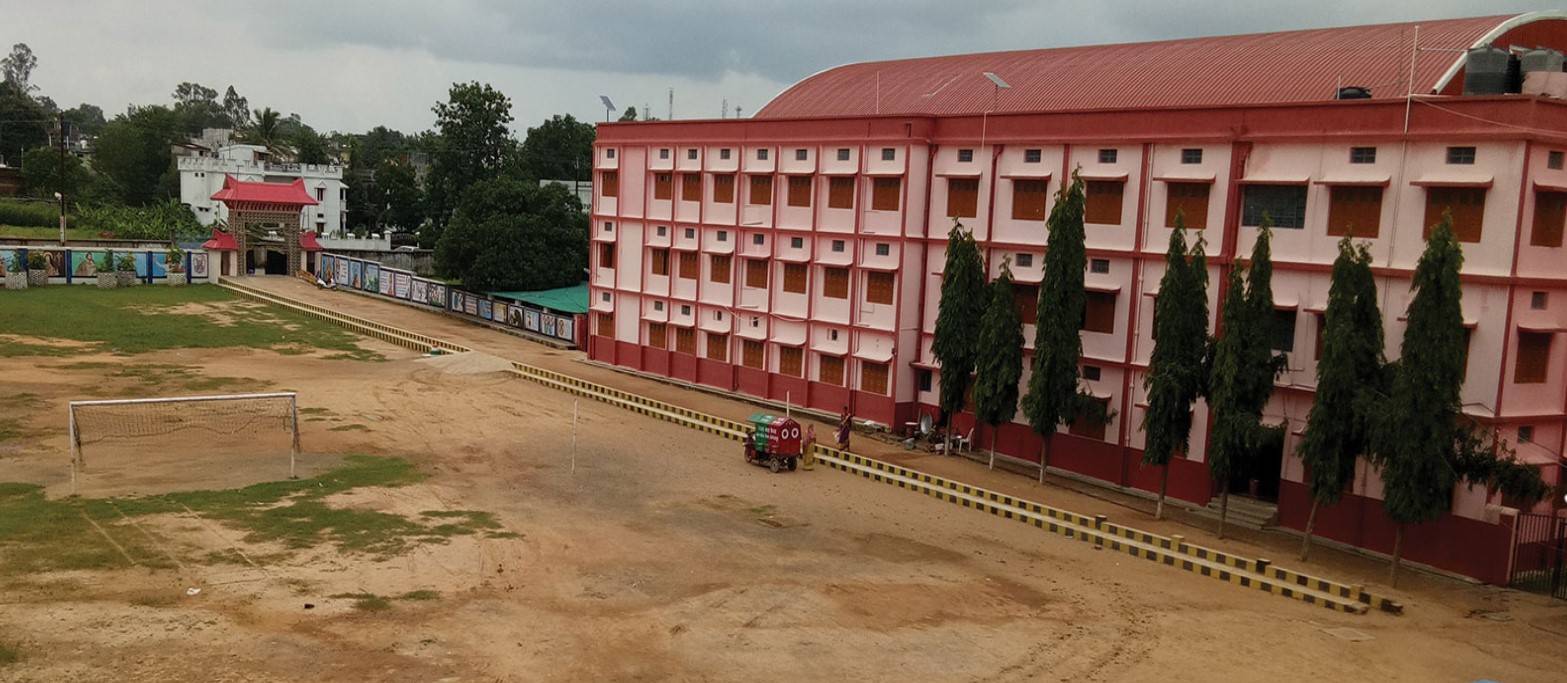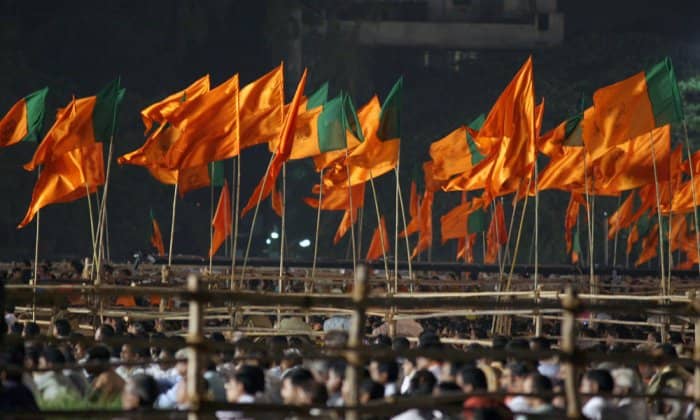MUMBAI, India – Christian leaders in India are calling on the faithful “to stand with the vulnerable Dalits in the society” on Dalit Liberation Sunday, scheduled to take place on Nov. 11.
Dalits – formerly known as “untouchables” and also known as members of “scheduled castes” – are at the bottom of Hinduism’s rigid caste system.
India has instituted several public programs – similar to affirmative action in the United States – to help the Dalit population, which make up between 15 and 20 percent of the country’s population, but widespread discrimination and marginalization continue.
In India, Christians are approximately 2.3 percent of the population, of which around 60 percent are Dalits.
The Catholic bishops joined with the National Council of Churches in India to institute Dalit Liberation Sunday every second Sunday of November.
This year’s theme is: “As for Me and My Household, We will serve the Lord.”
Father Z. Devasagaya Raj, the secretary of the Office of Scheduled Castes-Backward Classes of the Catholic Bishops’ Conference of India, said the theme was chosen because 2018 marks the 10th anniversary of the anti-Christian pogrom in Kandhamal in Odisha state.
RELATED: ‘Kandhamal’ tells the whole story of anti-Christian persecution
In 2008, a series of riots led by radical Hindus left roughly 100 people dead, thousands injured, 300 churches and 6,000 homes destroyed, and 50,000 people displaced, many forced to hide in nearby forests where more died of hunger and snakebites.

Raj said the anniversary is an occasion to “admire the Christians who sacrificed their lives, land, houses, property, and livelihood for the sake of their faith.”
Father Ajay Singh, the director of the Odisha Forum for Social Action, said it was “heartening” that the bishops’ conference and National Council of Churches chose to honor the Kandhamal victims.
“It is quite a welcome step on the part of the national Church to recognise the concerns and issues of the people, who were martyred for the faith and remained witness for Christ despite all odds,” Singh said.
The priest said that ten years after “the biggest and largest persecution against Christians in Indian history,” the victims are yet to receive justice.
RELATED: Pope cites Indian prelate’s tale of modern-day martyrdom
In August 2016, India’s Supreme Court ordered the state government to re-investigate 315 cases of violence reported during the riots, where police did not follow up on reported crimes, or the perpetrators were not prosecuted.
The 315 cases concerned are instances in which reports were made to the police but were not followed through or did not result in prosecution of the offenders.
“Not even one percentage is justice done for the victims and survivors of this genocide. Almost 70 percent of the complainants were not accepted by the police. Today, not even one person is behind bars of thousands of perpetrators involved in arsons, looting, murders and gang rapes, while seven innocent persons are languishing behind the bars for last ten years for murders of a Hindu political leader on flimsy grounds,” Singh said.
The priest was referring to the men who were convicted under a “fast-track” legal process for the murder of Vishwa Hindu Parishad leader Laxmanananda Saraswati and his four disciples in August 2008.
The murder of Saraswati is what sparked the anti-Christian riots, despite the fact that Maoist rebels claimed responsibility for the attack.
Singh told Crux he hopes the commemoration of the attacks during Dalit Liberation Sunday will give other Christians in India the opportunity to understand the “diabolic strategy” of Hindu nationalist groups to “perpetuate feudal and religious hegemony as well as subdue the marginal groups” in India.
“We need to stand by the most vulnerable and persecuted groups like the Kandhamal people, and like good Samaritans to join the mission and mandate of Jesus for the establishment of an egalitarian society,” he said.
RELATED: Bishops of India told to do more to help former ‘untouchables’
Raj said Christians of other castes in India need to be aware of the situation facing Dalits throughout the country.
“The special Sunday has received increased response and support over the years in sensitizing local congregations towards concerns of Dalits and helping people to see that the caste issue is no longer visualized as purely a sociological issue or an issue outside the purview of Church but as an issue challenging the core of faith and Gospel,” Raj said.
The priest said Dalits are not only economically poor but politically powerless and socially outcasts.
“The man-made caste system which remains a social stigma throughout generations has divided us, that we are not able to feel and experience the real presence of God in our lives,” he said.
Raj told Crux the present government – run by the Hindu-nationalist BJP party – has continued to deny the status of “scheduled caste” to Dalit Christians, thereby denying them the affirmative action given to other Dalits.
“They justify it by saying that it will lead to mass conversion, which is false. When Sikhs and Buddhists were given scheduled caste status such a thing did not happen,” he said.
“Dalit Liberation Sunday is an opportunity to give hope, to empower and to uplift the lives of our Dalit brethren,” Raj said. “Let us come together to take part in creating a peaceful and harmonious society to live, love and share together.”
















